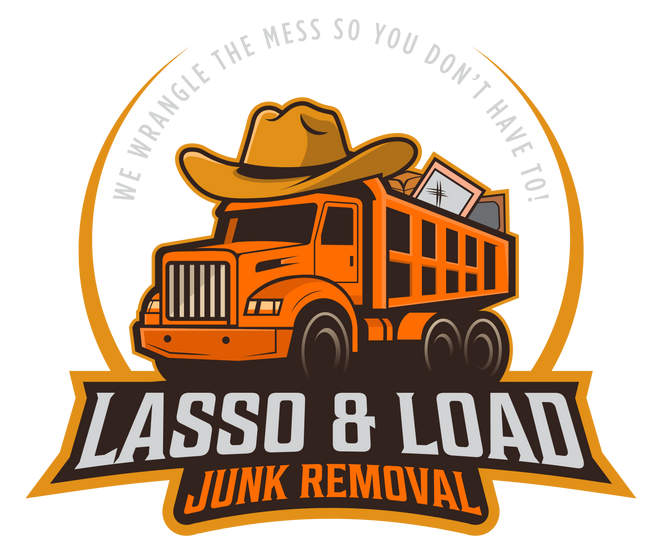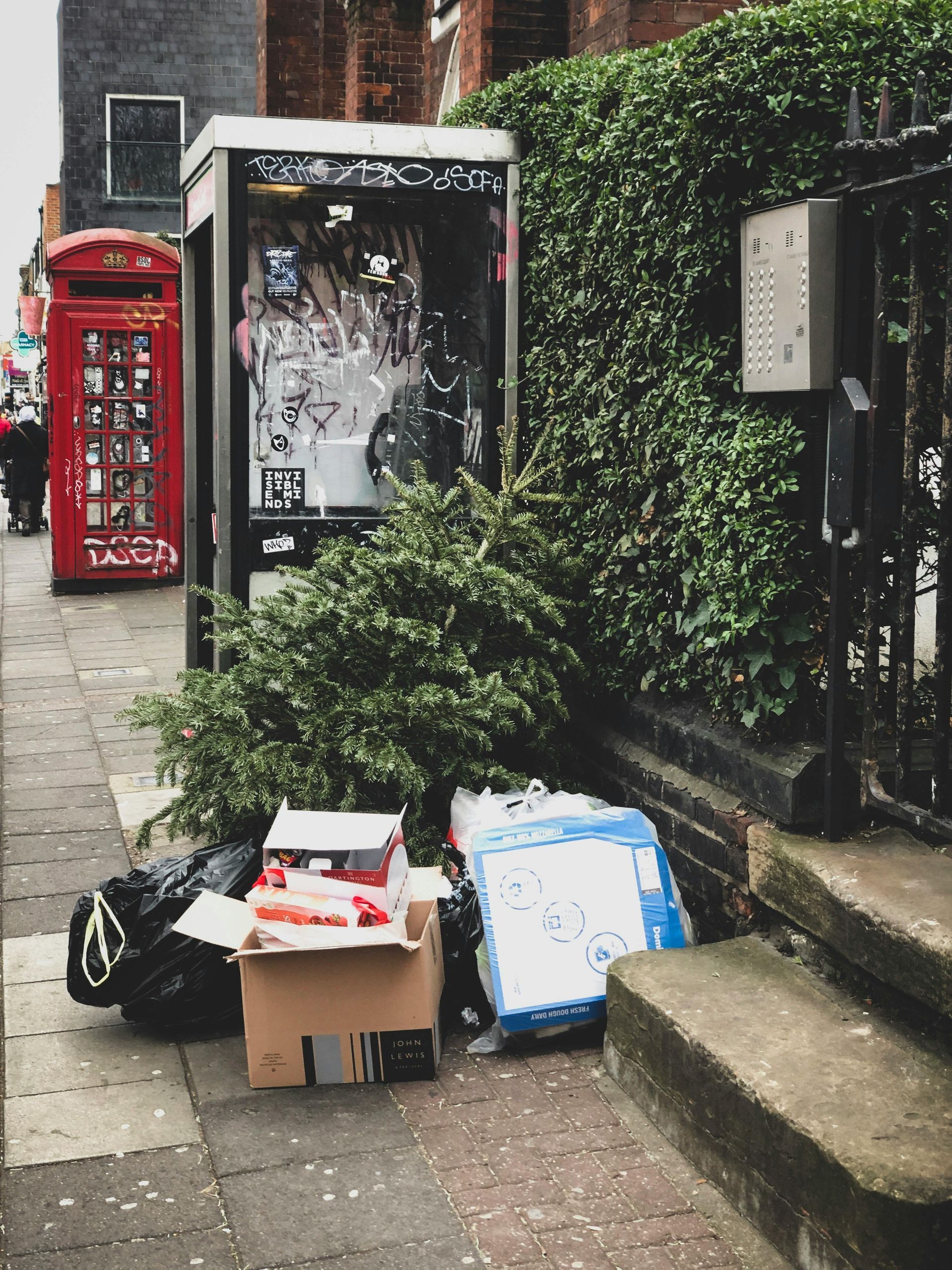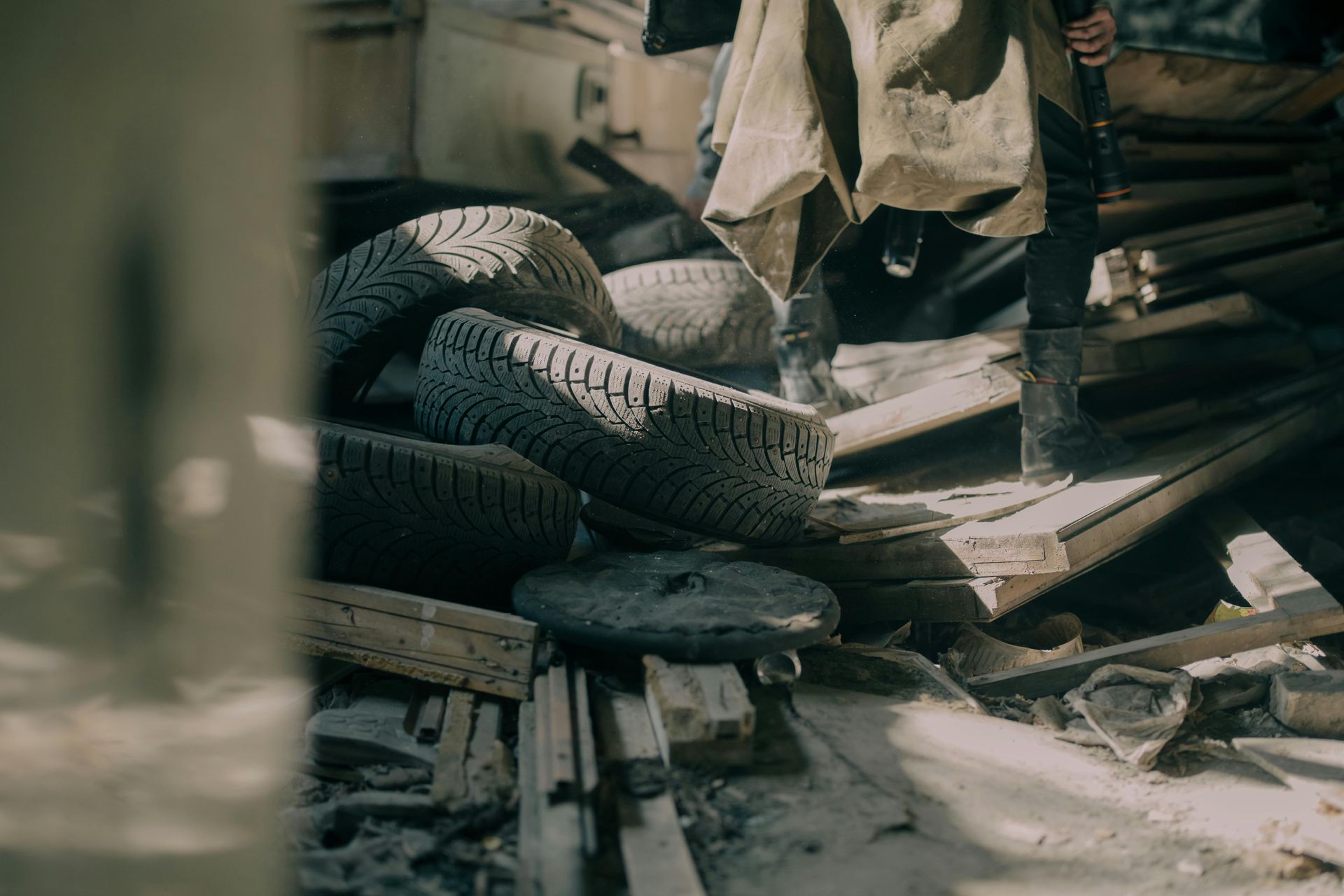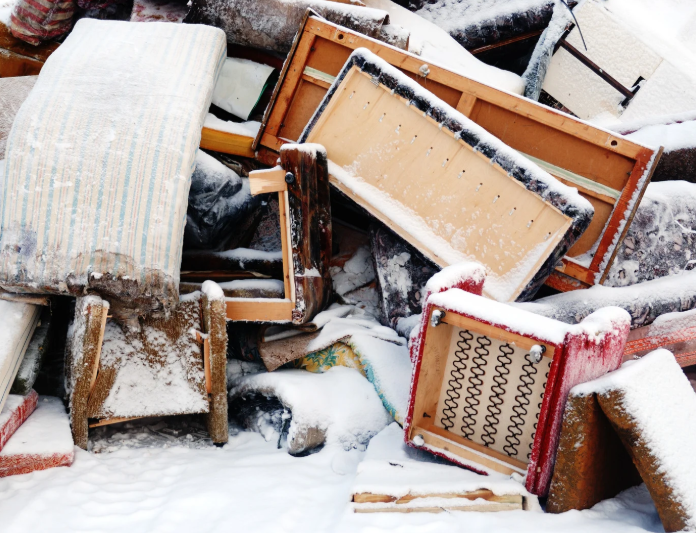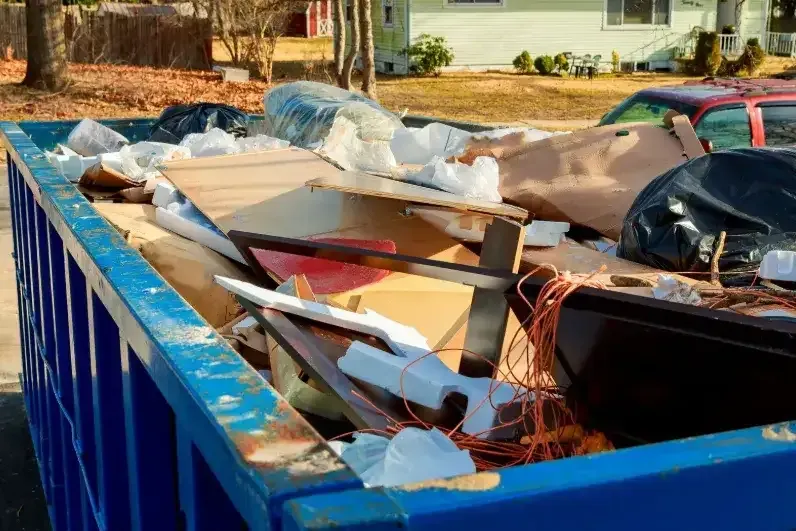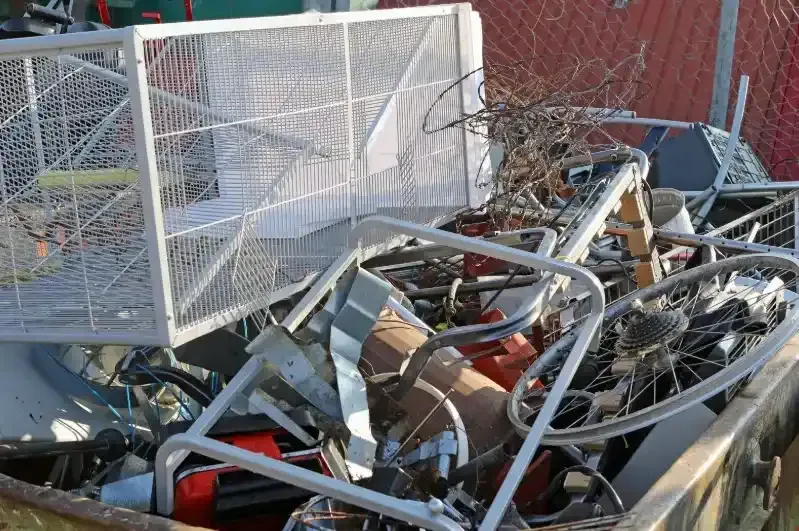What to Do with the Debris After Concrete Removal
Concrete removal—whether you're tearing out an aging driveway, breaking up an old foundation, or revamping a patio—leaves behind more than just a blank slate. It produces heavy, unwieldy debris that’s bulky, cumbersome, and often sharp-edged. Simply letting it sit is not only unsightly but can also pose tripping hazards, obstruct drainage, and even violate local codes. The question then becomes: what’s the best way to handle it? Dumping it all in a landfill may seem like the quickest fix, but it’s far from the most responsible.
Today, there are smarter, more sustainable ways to deal with concrete waste that don’t involve harming the environment or cluttering your space. From recycling to repurposing, donating to hauling, homeowners and contractors alike have options—many of which can actually save time, money, and effort in the long run. The key lies in choosing a disposal method that’s efficient, ethical, and suited to your project’s scope.
The Importance of Proper Concrete Debris Disposal
When you start a concrete removal project, the last thing you want is for the debris to become a headache. Disposing of concrete isn’t as simple as throwing it in the trash. Due to its weight, size, and composition, concrete can be challenging to manage. Simply hauling it to a landfill isn’t always the best option, as it can be wasteful and detrimental to the environment. The good news is that there are smarter, more sustainable ways to deal with the debris, and depending on your location and project scale, you have several options to explore.
The first thing to consider is whether the concrete debris can be reused or recycled. Concrete is made from natural materials like sand, gravel, and cement, so it has potential value beyond its initial purpose. With a little creativity and some effort, you can breathe new life into the material and reduce your environmental footprint in the process.
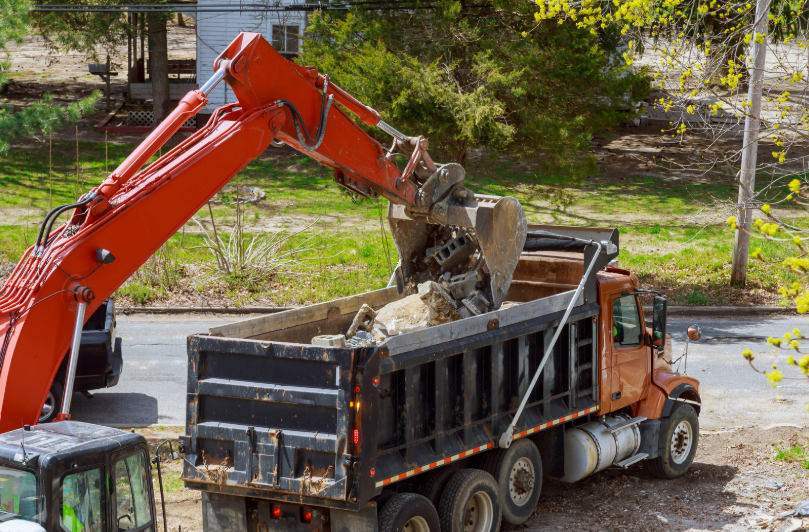
Recycling Concrete for New Uses
Recycling is often the most sustainable solution for concrete debris. Recycling involves breaking down the concrete into smaller pieces, which can then be reused for other construction or landscaping purposes. Not only is this an eco-friendly option, but it also helps reduce the demand for raw materials, making it a great way to contribute to a circular economy. Recycled concrete can be used in various ways. One of the most common uses is as a base material for new construction projects. Crushed concrete makes an excellent subbase for roads, parking lots, and driveways. It is also frequently used as a foundation material for landscaping and hardscaping projects, such as building retaining walls or laying a gravel pathway.
When processed into a fine material, it can even be used as fill for landscaping or to stabilize erosion-prone areas. Additionally, recycled concrete can be used in the production of new concrete. This process is known as concrete reclaimer technology, which involves mixing crushed concrete with new cement to create a fresh batch of concrete. Although this process is more common in large-scale construction, smaller projects can also benefit from this technique. By recycling your concrete debris, you’re helping to conserve raw materials and reduce landfill waste, which is a win for both your project and the environment.
Donating Concrete for Reuse
While it may seem surprising, there are some charitable organizations and community groups that accept concrete donations for various construction projects. Non-profits that focus on building homes or providing shelter for those in need often welcome donations of building materials, including concrete.
In some cases, local schools, churches, or other community groups may also be interested in using the concrete for their own construction projects. Donating the concrete not only helps others but also helps you avoid the hassle of dealing with large piles of debris. If you're unsure of where to donate, start by checking with local Habitat for Humanity chapters or other similar organizations in your area.
Renting a Dumpster for Concrete Removal
If recycling or donating isn’t an option for your concrete debris, renting a dumpster is a practical choice. Many junk removal companies and waste management providers offer dumpsters specifically designed for heavy debris like concrete. The benefit of renting a dumpster is that it makes the disposal process much more manageable, especially if you have a large amount of debris.
Once the debris is removed from your property, it is typically hauled to a local recycling center or landfill. Some companies may also be able to break down the concrete into smaller pieces before transport, which can help reduce disposal fees. When renting a dumpster, make sure you select the correct size for your project, as too small a dumpster will result in multiple trips, and too large will waste money. Always consult with the rental company to ensure that they can handle the type of debris you need to dispose of.
Hiring a Junk Removal Service
If the idea of hauling heavy concrete, renting a dumpster, or figuring out disposal logistics sounds overwhelming, hiring a junk removal service is a smart move. These companies specialize in removing all types of debris—including stubborn, weighty concrete—and they handle every part of the process, from pickup to disposal. This approach saves you time, energy, and even risk of injury, especially for those without the proper tools or manpower. Many junk removal companies offer same-day or next-day service, helping you stay on track with tight project timelines.
Beyond convenience, an important benefit is responsible disposal. Not all junk removal services are the same—some toss everything into landfills, while others prioritize recycling and reuse. Be sure to ask about their practices. Choosing a company that aligns with your sustainability goals can help reduce your environmental footprint. With the right team on your side, your concrete cleanup becomes efficient, eco-conscious, and headache-free from start to finish.
What to Avoid When Disposing of Concrete Debris
When handling concrete debris, it’s crucial to avoid shortcuts that could lead to safety risks or fines. Tossing chunks of concrete into your regular household trash is a mistake many people make. Standard garbage collection services aren’t equipped for that kind of weight and bulk, and doing so can not only damage collection trucks but also result in penalties from your waste provider. The same goes for trying to hide debris in recycling bins—it can cause contamination and disrupt the recycling process entirely.
Attempting to burn or incinerate concrete is another big no. Concrete doesn’t combust; instead, it can release hazardous dust and toxic chemicals when subjected to high heat, posing serious environmental and health risks. Finally, leaving the debris sitting on your property indefinitely can invite unwanted issues. It becomes a tripping hazard, encourages drainage problems, and in some cases, may violate local ordinances. For safety, aesthetics, and legality, always choose a proper, responsible disposal method instead of a makeshift one.
Concrete Removal Services: Professional Assistance for Larger Projects
Larger-scale demolition projects involving slabs, driveways, patios, or foundations usually require more than a wheelbarrow and elbow grease. That’s where professional concrete removal services come in. These teams are equipped with heavy-duty tools like jackhammers, concrete saws, and hauling vehicles to take care of even the most challenging removal jobs. They can safely navigate tight spaces, remove debris from hard-to-reach areas, and ensure no structural damage occurs to surrounding parts of your property.
Even if your project seems manageable, professionals bring speed, safety, and cleanup efficiency. Most services also include hauling and proper disposal—whether that means recycling the debris, crushing it for reuse, or responsibly transporting it to an approved landfill. Their all-in-one service saves you multiple trips, potential injury, and the uncertainty of how to get rid of everything. When time is money and safety is non-negotiable, concrete removal experts can make your project smoother, faster, and stress-free.
Concrete Debris Disposal at the Landfill
In cases where recycling or donation aren’t possible, landfilling the concrete debris might be the only remaining option. Although this isn’t the most eco-friendly choice, it is sometimes necessary. If you must go this route, make sure to choose a landfill that accepts construction and demolition debris. Many landfills charge based on weight, so be prepared for potentially high fees if you're disposing of a significant amount of concrete.
Even though landfilling should be your last resort, it’s sometimes unavoidable, especially for large, commercial projects. Before choosing this method, however, consider the environmental impact and weigh the benefits of recycling or donation. It’s always best to explore all other options before sending concrete debris to the landfill.
Conclusion
Concrete removal can generate a surprising amount of heavy, dusty debris, but managing it doesn’t have to be overwhelming. With a little planning and effort, you can turn the cleanup process into something efficient and even environmentally friendly. Whether you're leaning toward recycling the concrete, repurposing it for another project, donating what you can, or simply renting a dumpster for bulk disposal, the key lies in matching your cleanup strategy with the size and scope of your demolition. Thinking sustainably not only helps the environment but can also save you money and simplify your project timeline.
If you're handling concrete demolition in Gwinnett County and need reliable help removing the aftermath, Lasso & Load Junk Removal is ready to step in. We specialize in handling concrete waste and all other forms of junk with care, professionalism, and respect for your property. Let our team take the stress off your plate by managing the debris from start to finish. For prompt and dependable service, call us today at 404-227-2017 or send an email to Lauren.renwickk@gmail.com—we’re here to make your cleanup fast, easy, and done right.
